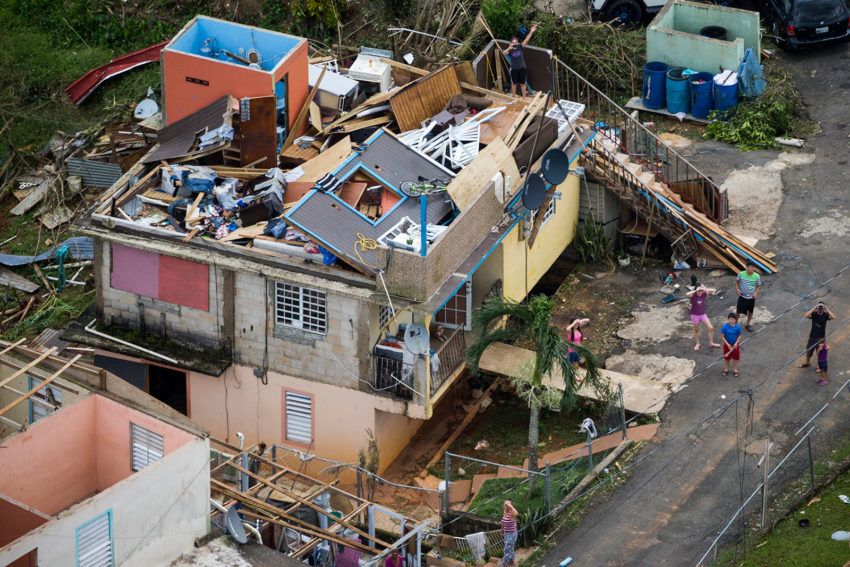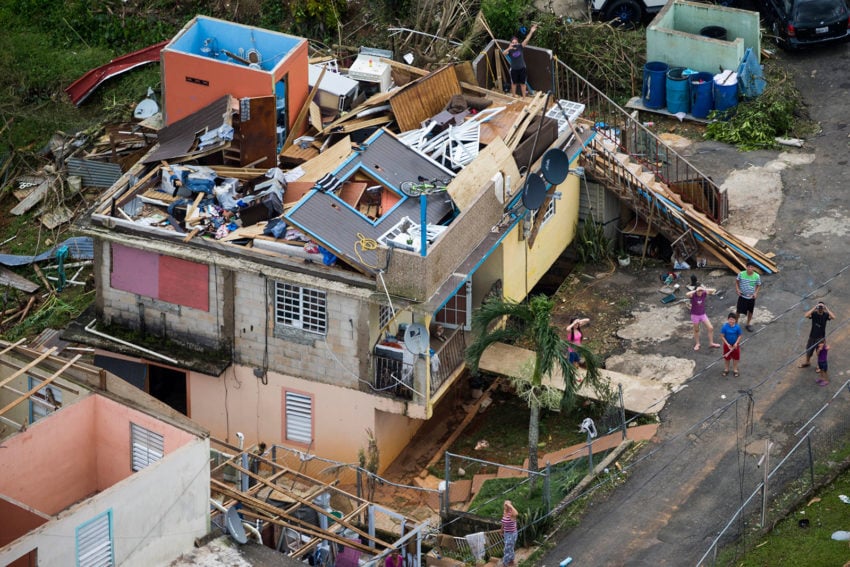## Level Up Your Empathy: Understanding Hurricanes with World Vision
You’ve faced epic boss battles and conquered treacherous dungeons in your favorite games. But what about facing a real-life challenge? Hurricanes are nature’s ultimate power-up, unleashing devastating winds, torrential rain, and floods that leave communities reeling.

This isn’t just another quest though, this is about understanding the raw power of nature and how we can join forces to help those caught in its path. Gamestanza is teaming up with World Vision to break down the facts about hurricanes, answer your burning FAQs, and show you how even a single player can make a difference in the face of this global threat.

Hurricane Katrina: A Historic Tragedy
Hurricane Katrina, a Category 5 hurricane that struck the Gulf Coast of the United States in August 2005, remains a stark reminder of the devastating power of nature. The storm’s relentless winds and unprecedented storm surge caused widespread destruction, leaving an indelible mark on the region and the nation.
The Path of Destruction
Katrina’s path of destruction was marked by catastrophic flooding, particularly in New Orleans, Louisiana, where levees breached, inundating 80% of the city. The storm surge, fueled by the hurricane’s immense size and strength, pushed seawater inland, overwhelming coastal communities and causing extensive damage to infrastructure and property.
The storm’s impact extended far beyond New Orleans, affecting coastal communities in Mississippi, Alabama, and Florida. Thousands of homes were destroyed, businesses were shuttered, and critical infrastructure, including hospitals and power grids, was severely damaged.
World Vision’s Response
In the wake of Katrina’s devastation, World Vision swiftly mobilized its resources and expertise to provide emergency relief and long-term support to affected communities.
- Immediate Emergency Relief: Within 48 hours of the hurricane’s landfall, World Vision delivered emergency supplies such as food, water, shelter, and medical aid to those in dire need.
- Long-Term Recovery: World Vision’s commitment extended beyond immediate relief. The organization worked tirelessly to help families rebuild their lives by providing housing assistance, educational support, and economic empowerment opportunities.
- Strengthening Coastal Defenses: Investing in more robust levees, seawalls, and other protective measures is crucial to mitigate the impact of storm surges.
- Improving Evacuation Plans: Developing comprehensive evacuation plans that prioritize vulnerable populations and ensure timely and efficient transportation is essential.
- Enhancing Communication Systems: Reliable communication networks are vital for disseminating critical information during emergencies and coordinating relief efforts.
- Assessing Needs: World Vision teams are conducting thorough assessments to determine the most pressing needs of affected communities.
- Providing Essential Aid: We are distributing food, water, shelter, and other essential supplies to those in need.
- Supporting Recovery: World Vision is working with local partners to provide long-term support, including housing assistance, economic recovery programs, and psychosocial support.
- Housing Assistance: World Vision helps families rebuild or repair their homes, providing materials, construction support, and financial assistance.
- Economic Recovery: We support income-generating activities, such as small business development and agricultural assistance, to help families regain their economic stability.
- Education and Healthcare: World Vision prioritizes the well-being of children by providing access to education and healthcare services, ensuring that they can recover and thrive.
- Strengthening Disaster Preparedness: We provide training and resources to help communities develop effective disaster preparedness plans and early warning systems.
- Promoting Climate Change Adaptation: World Vision supports projects that help communities adapt to the impacts of climate change, such as building seawalls and restoring coastal ecosystems.
- Empowering Local Leaders: We invest in training and capacity building programs for local leaders, equipping them with the skills and knowledge to effectively respond to future disasters.
Lessons Learned from Katrina
Hurricane Katrina exposed vulnerabilities in disaster preparedness and response systems, highlighting the need for improved infrastructure, communication, and coordination among government agencies, nonprofits, and communities.
The tragedy underscored the importance of:
Hurricane Helene: A Recent Example of Destructive Power
Hurricane Helene, which formed in the Atlantic Ocean in 2023, served as a potent reminder of the enduring threat posed by hurricanes. Though Helene did not reach the intensity of Katrina, it caused significant damage and underscored the importance of preparedness and resilience.
The Impact
Hurricane Helene’s impact was felt across several Caribbean islands and the eastern United States. The storm’s high winds and heavy rainfall resulted in widespread power outages, flooding, and structural damage. Coastal communities bore the brunt of the storm’s force, with strong waves eroding beaches and causing coastal flooding.
Community Resilience
Despite the significant challenges posed by Hurricane Helene, communities demonstrated remarkable resilience. Local residents came together to assist their neighbors, and organizations, including World Vision, provided vital support to those in need.
Community leaders, emergency responders, and volunteers worked tirelessly to assess damage, clear debris, and restore essential services. The collective efforts of these individuals showcased the strength and unity of communities in the face of adversity.
World Vision’s Ongoing Efforts
World Vision continues to work with communities in the wake of Hurricane Helene, providing long-term support to help them recover and rebuild.
Helping Hands in the Aftermath: World Vision’s Mission
World Vision’s mission is to alleviate suffering and create hope for children and families affected by disasters, including hurricanes.
Immediate Relief: Providing Food, Water, and Shelter
In the immediate aftermath of a hurricane, access to basic necessities becomes critical. World Vision prioritizes providing rapid and effective relief by delivering food, water, and shelter to those who have lost their homes and livelihoods.
Our teams work tirelessly to set up distribution centers, provide clean water sources, and establish temporary shelters to ensure the safety and well-being of affected individuals.
Long-Term Support: Rebuilding Homes and Communities
World Vision’s commitment extends far beyond immediate relief. We recognize that rebuilding lives and communities takes time and sustained effort.
We work with local partners to provide long-term support, including:
Empowering Resilience: Building Capacity for Future Storms
World Vision believes in empowering communities to withstand future disasters. We work with local partners to build resilience by:
Conclusion
So, there you have it: hurricanes, these awe-inspiring forces of nature, capable of both destruction and renewal. From their formation over warm ocean waters to their devastating impacts on coastal communities, we’ve explored the science behind these meteorological giants and the human stories they leave in their wake. We’ve learned about the importance of preparedness, the crucial role of organizations like World Vision in providing aid, and the collective responsibility we share in mitigating the effects of climate change. As we navigate a future increasingly shaped by extreme weather events, understanding hurricanes is no longer just a matter of curiosity. It’s about recognizing our vulnerability, embracing our capacity for resilience, and actively shaping a world where communities are empowered to weather the storm. The next hurricane isn’t a question of if, but when. Are we ready? The answer lies not in ignoring the threat, but in embracing the power of knowledge, compassion, and collective action. Only then can we truly transform from bystanders to stewards of a safer, more resilient future.
